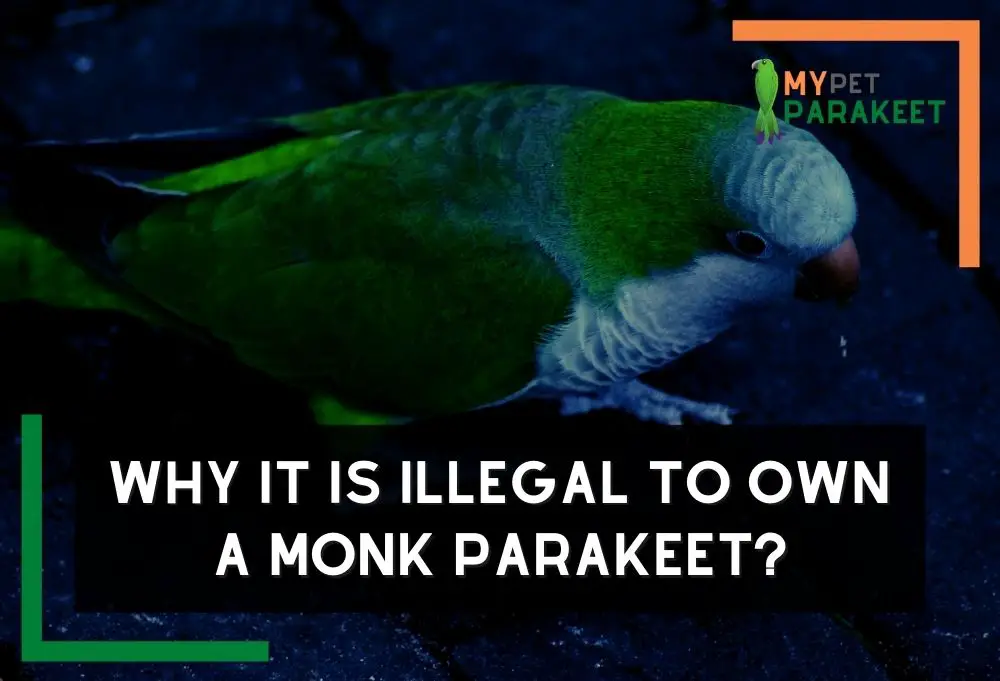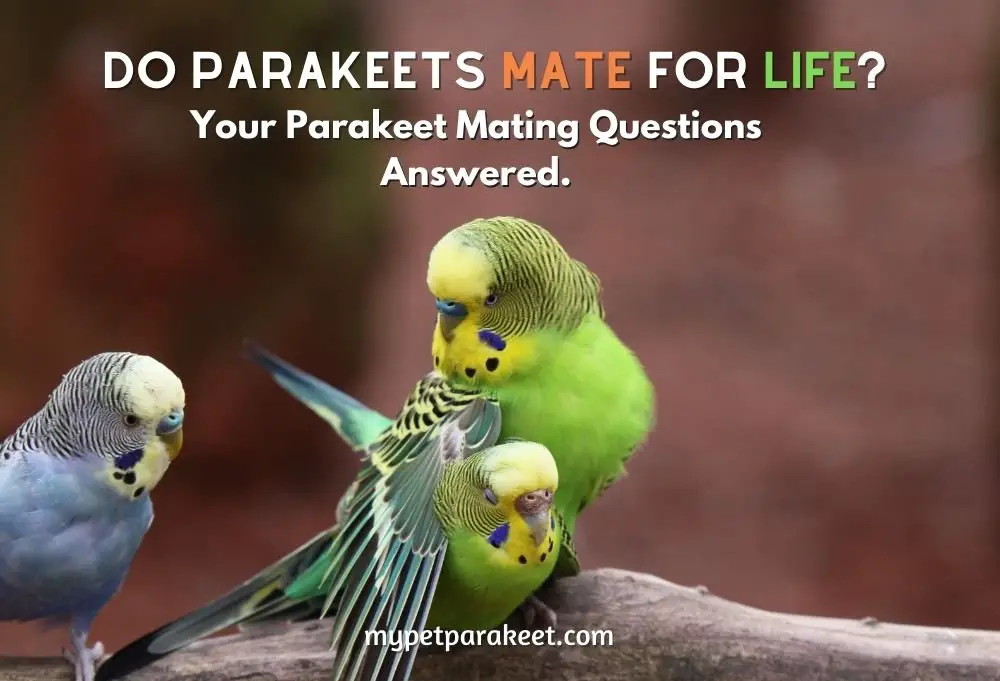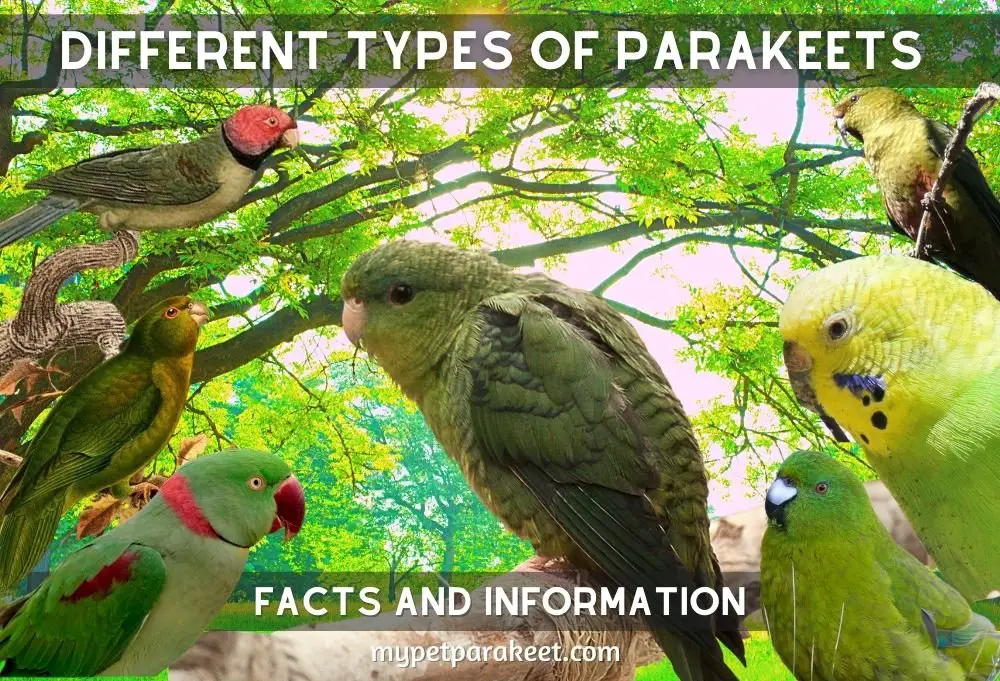In this post, we will discuss why it is illegal to own a monk parakeet in some places. Monk Parakeets, also known as Quaker Parrots, are small green parrots originating from regions in South America but has managed to establish wild populations in many North American states.
These popular pets are quite unique, the most distinctive feature, which is said to be the origin of their namesake “Quaker Parrot”, is strange shaking and trembling behaviors. These parakeets shake and bob in such a fashion it could easily appear something is wrong but it is a natural and unique behavior of this species.
While these parakeets can make great pets, some states have made the ownership of Monk Parakeets illegal due to the disruption they can have on plantations, public utilities, and native bird species.
Find out more about what makes Monk Parakeets a wanted felon in some areas, what states have outlawed these pets, and what restrictions are in place for others.
Monk Parakeets
Monk Parakeets tend to make popular pet parrots – they are easy to find, relatively inexpensive and thoroughly entertaining. These parrots have a mimicking ability that rivals some of the parrot world’s greatest talkers and they can learn hundreds of words and phrases.
Monk Parakeets have quite a long life span for a pet bird on the smaller side, some living up to 30 years with great care. Making these birds a large commitment when kept as pets.
While originally from South America, wild populations have been established throughout North America and Europe, originally stemming from birds that were imported for the pet trade having been released or escaping into the wild.
They tend to cause quite an issue for various reasons across the United States and some states have gone as far as making the ownership of them illegal, while many others have strict restrictions about keeping them as pets.
It’s vital if you own any pet bird to have it banded and never, ever release it to the wild. Non-native birds released or escaped can cause invasive species issues and meddle with delicate ecosystems and human infrastructure.
Native birds are accustomed to being pets and will likely not survive in the wild! Consider clipping your bird's wings if you want it to be able to spend time outside.
If you wish to get a pet Monk Parakeet then you need to know the legalities of owning one and first see if they are legal in your state.
What States Are Monk Parakeets Illegal?
A few states have made it illegal to own Monk Parakeets due to the ongoing issues faced with established wild populations.
These states are:
- California
- Hawaii
- Tennessee
- Pennsylvania
- Connecticut
- Kentucky
- Colorado
- Wyoming
- Rhode Island.
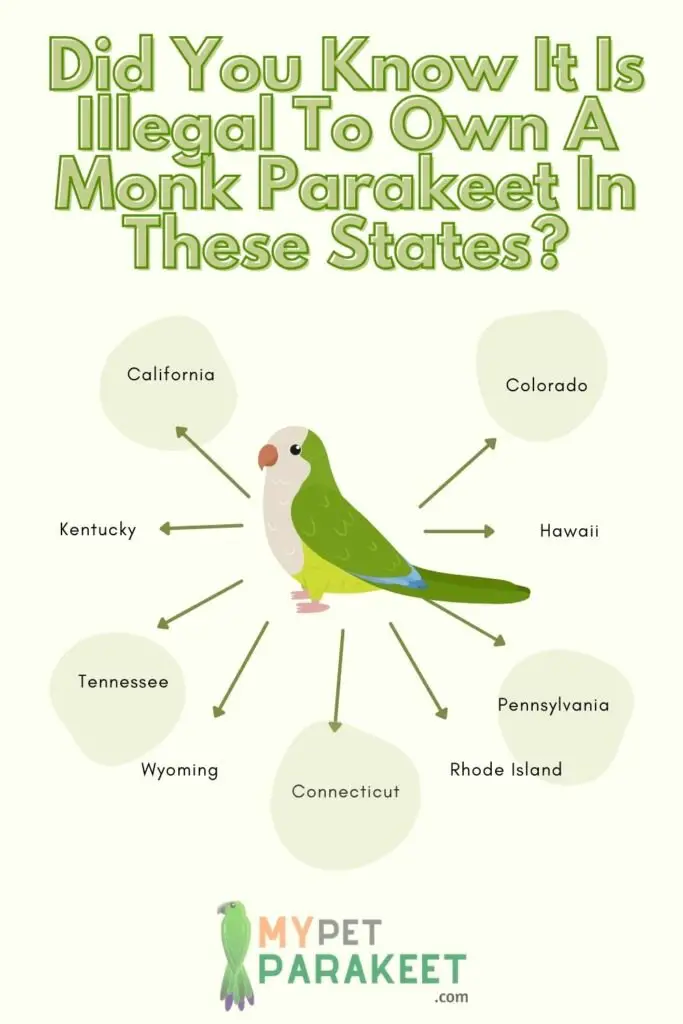
Some states have legal restrictions on ownership, these include:
- Maine
- New York
- Ohio
- Virginia
- New Jersey
Ensure you do your research and contact your local governing bodies for more information if you are looking into keeping a Monk Parakeet. Also, consider your future and any other states you may move to down the line. These parakeets can live a long time and you need to be able to commit to them for their whole lives!
Legalities Of Owning A Monk Parakeet
Law
Monk Parakeets are a non-native species in North America, meaning they do not naturally occur in North American habitats but have established populations due to human interference. In this case, humans have imported these birds for pet trading purposes and birds that have escaped or been released have established a population by surviving and breeding.
Non-natives are not protected by the Federal Migratory Bird Treaty Act so they can be deterred, trapped, and relocated legally when causing an issue in a certain region.
Ownership of Monk Parakeets as pets is completely illegal in some states and you can be prosecuted if found to own, breed, or sell these birds. These birds can also be confiscated and euthanized if owned illegally.
See here for an up-to-date list on the legal status of Monk Parakeets across the states.
You will see that only a few states have made ownership illegal, while a handful of others have controlled ownership with some restrictions.
Restrictions
- Licencing – some states require owners to gain a license to own Monk Parakeets and for all birds to be registered with the local governing body. This helps governments keep tabs on who owns the bird and how many are kept as pets across their state. They usually require you to inform them if you sell a bird, a bird dies or a bird escapes.
- Banding – This is the most widespread restriction on Monk Parakeets. Bands indicate age and where they have come from. Bands should have a way to trace the bird back to the breeder. Bands also help identify wild Monk Parakeets from pets that have escaped. If a banded bird is caught in the wild then it can be traced back to its owner.
- Clipping – part of many states restrictions include clipping your Monk Parakeets wings. Clipping is a common practice but not every bird owner likes to clip wings. Clipping can be required to ensure if a bird does escape that it cannot go very far and will not be able to establish itself as a wild bird.
See here for more information on the legal requirements of owning Monk Parakeets.
Why Are Monk Parakeets Illegal In Some States?
Threat To Agriculture
Monk Parakeets are a species that gather in large flocks and reproduce at a high rate, with females laying many eggs which hatch quickly.
Flocks of these parakeets feed on fruit, vegetables, and seeds so are naturally drawn to agricultural areas where crops are planted in abundance as part of the agricultural industry. Large flocks can cause serious damage to farmers' crops, affecting the food supply and the local economy.
Even in their natural habitat of South America, they cause some strife to farmers. Their populations have exploded with the human influence, with food plantations providing a great food source and eucalyptus forests intended for paper production providing protected nest building sites.
In the United States, Monk Parakeets have the largest effect on crops of corn, pears, cherries, and grapes. If not carefully managed populations can get out of hand and have severe impacts on the economy of the agricultural industry.
Interference With Native Species
Monk Parakeets tend to be territorial and aggressive and large flocks can keep other native birds away from vital food supplies.
Introduced species of all kinds have long caused issues for native birds in habitats. Natives have spent thousands to millions of years adapting alongside their changing environments and when human-introduced species appear in short amounts of time they can quickly disrupt the delicate balance of the ecosystem.
Monk Parakeets left to multiply and spread can pose a threat to native populations.
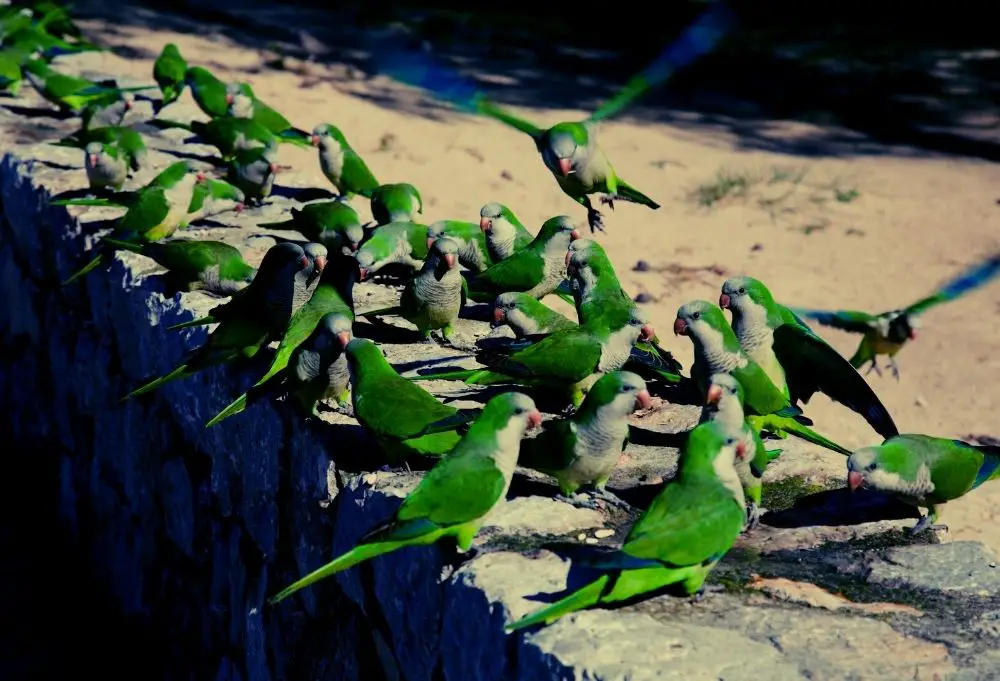
Effects On Public Infrastructure
Monk Parakeets are the only parrot that is a true nest-building bird. All other parrots are considered cavity nesters, meaning they find natural cavities to fill with nesting material.
Monk Parakeet nests consist of an abundance of sticks plonked together. Furthermore, these birds are communal nesters meaning many birds will nest together on a large scale. This means the nests are colossal in size and their placement in urban environments tend to be massively inconvenient for humans.
These nests have been found on power poles, church steeples, and radio towers and the sheer weight of them have actually caused roofs to collapse.
Nesting around power poles has been the cause of widespread power outages, costing governments thousands of dollars to remedy the situation.
This has also caused safety concerns with nests interfering with circuits causing electrical fires.
Many utility companies have tried tirelessly to provide alternative nesting spaces, using repellents such as chemicals and noise deterrents but to little luck. When the nests are physically dismantled they get straight to building new ones.
Noise
A flock of Monk Parakeets has reported being heard from 5 blocks over. These loud and gregarious birds cause neighborhood disruptions wherever they congregate.
Zoonotic
Zoonotic is the term that describes any disease that is able to be transferred from human to animal and vice versa.
Monk Parakeets are known to commonly carry psittacosis which is a zoonotic disease.
This disease is not a great threat to humans, while it can make us sick it is not often fatal. But it can be passed on to other bird species whether that be our pet birds, poultry, or native bird species.
Psittacosis is in higher numbers with Monk Parakeets due to their large numbers in flocks. If passed on to native species it can be detrimental to the populations. It also poses a threat to poultry farming and our food sources.
Conclusion
While Monk Parakeets can absolutely make wonderful pets in the home, any prospective owners need to ensure they do thorough research on the legalities of their state on the ownership of these neat birds.
All bird owners, whether they own a Monk Parakeet or any other species, should always prioritize being a responsible bird keeper and ensure your birds are secure and traceable.

